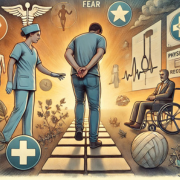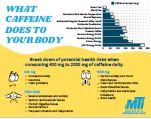The Psychosocial Journey of Prosthetic Use in Workers’ Compensation: Insights from Zack Craft – VP Complex Claims
Exploring the Mental and Emotional Challenges Beyond Physical Recovery for Injured Workers

In complex claims, especially workers’ compensation, our goal extends beyond arranging and delivering prosthetics to injured workers. It’s about supporting the whole individual’s journey to a new normal. While the physical injury may eventually heal, the mental and emotional recovery associated with using a prosthetic often takes much longer, layered with challenges, adjustments, and evolving perceptions.
The Psychological Landscape of Prosthetic Use
When workers first receive a prosthetic, there is often an initial excitement—an expectation that this new device will restore their capabilities and help them regain control. However, as Zack Craft insightfully noted, the reality can be jarring. While a prosthetic might be an advanced technology, it doesn’t simply replace a lost limb in function or feeling. For many, there’s a disconnect between what they hope the prosthetic will allow them to do and the effort required to make it work seamlessly.
Building balance, strength, and coordination is a significant component of adjusting to a prosthetic. Learning to walk with a prosthetic leg or maneuver a robotic hand requires immense physical and mental energy. The task can be frustrating when an individual expects swift adaptability but instead struggles with limitations. Simple tasks like picking up a cup can become daunting exercises in patience and practice. When the device does not respond as quickly or accurately as they wish, it can be demoralizing, leaving many to feel like they are failing—even when they’re making significant progress.
Cognitive and Emotional Recovery
The mental and emotional journey is as critical as the physical one, if not more so. Injured workers who receive prosthetics face a complex cognitive challenge: accepting and adapting to the new normal that their prosthetic represents. Some embrace this new identity with resilience, proudly displaying and discussing their prosthetics. For others, the attention a prosthetic can draw, the stares, or the questions can be deeply uncomfortable, even triggering feelings of vulnerability or insecurity.
|
Caffeine and Recovery from a Major Injury
Caffeine, a common stimulant, can affect the recovery process from significant injuries in both positive and negative ways.
Potential Benefits
Caffeine can enhance pain relief when combined with medications like ibuprofen and provide an energy boost to combat fatigue often experienced during recovery. Additionally, it may improve blood circulation and support tissue repair.
Potential Drawbacks
Excessive caffeine can disrupt sleep, which is critical for healing, and elevate stress responses, potentially hindering recovery. If consumed in large amounts, it may also contribute to dehydration, affecting overall recovery progress.
Tips for Safe Use
- Limit caffeine intake to 200–400 mg daily (2–4 cups of coffee).
- Avoid caffeine later in the day to ensure quality sleep.
- Stay hydrated and prioritize a balanced diet.
Sign Up for CE Webinar Alerts >>
EVENTS
 |
Webinar
Dec. 12, 2024
Fear Avoidance Behavior in Injured Workers
Register Today |
 |
Jan. 28 – 29, 2025
Broadspire Charity Golf Tournament
|
|
|




















